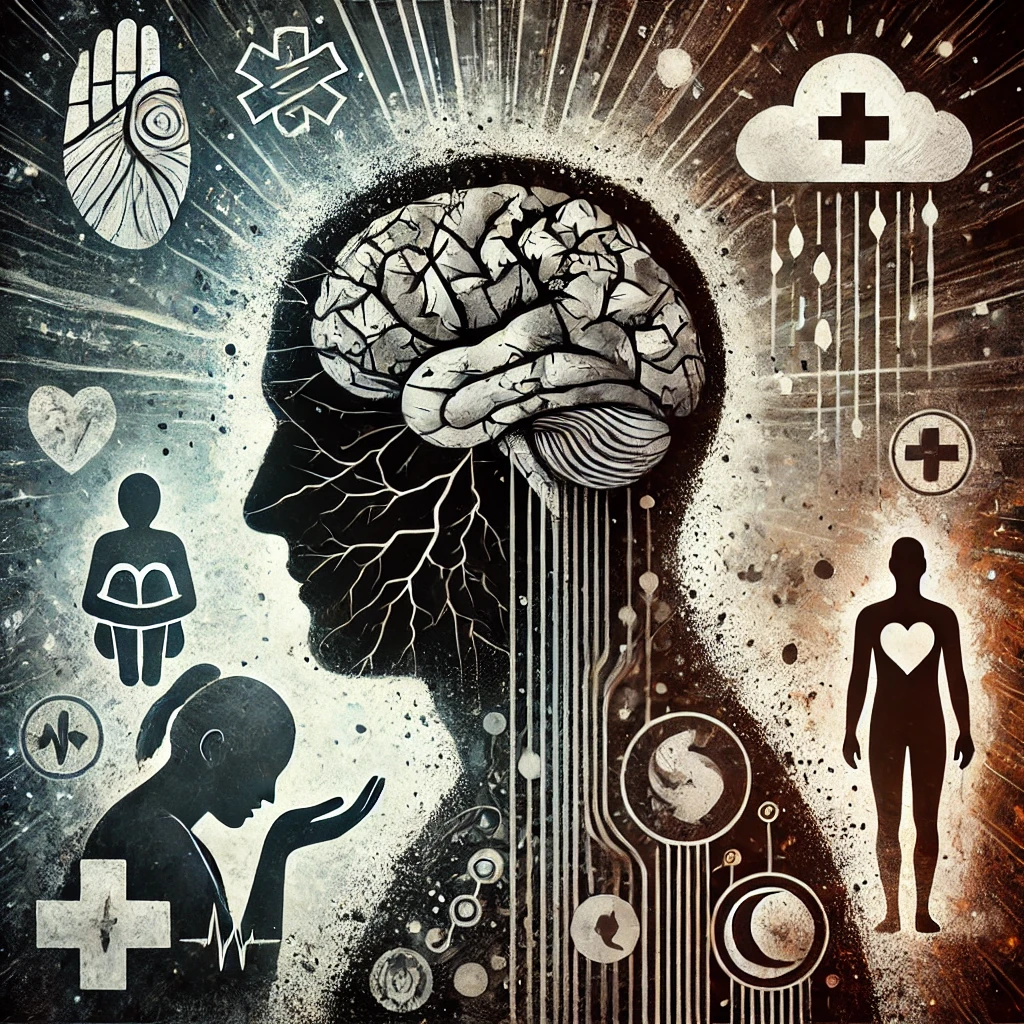Your cart is currently empty!

Beyond the Physical: Exploring the Mental Health Consequences of Traumatic Brain Injury
Beyond the Physical:
Exploring the Mental Health Consequences of Traumatic Brain Injury.

Welcome to our mental health blog! Today, we talk about TBI and how it affects you and your mental health.
Understanding Traumatic Brain Injury (TBI) and Its Impact on Mental Health
Traumatic Brain Injury (TBI) is a serious and often life-altering condition that occurs when the brain is injured due to an external force. This can happen in various ways, including falls, car accidents, sports injuries, or violent blows to the head. The effects of TBI can be both immediate and long-lasting, affecting not only physical health but also mental well-being.
The Physical and Emotional Toll of TBI
The immediate effects of TBI can range from headaches and dizziness to nausea and loss of consciousness. In more severe cases, TBI can result in significant cognitive impairments. Individuals may experience difficulty with memory, concentration, problem-solving, and even the ability to perform everyday tasks. These challenges can drastically affect one’s quality of life, making it difficult to function in both personal and professional settings.
But the toll of TBI isn’t just physical. The emotional and psychological effects can be just as profound and long-lasting. Survivors of TBI often face an uphill battle in managing their mental health, as brain injuries can disrupt the brain’s ability to regulate emotions. This may lead to irritability, mood swings, and even feelings of hopelessness.
Mental Health Consequences of TBI
One of the most significant aspects of TBI is its profound impact on mental health. It is not uncommon for individuals to experience mood disorders such as depression, anxiety, or post-traumatic stress disorder (PTSD). These emotional consequences can arise as a direct result of the injury itself, but can also stem from the frustrations of dealing with long-term changes in daily functioning and the loss of previously held abilities.
TBI survivors may also experience significant changes in their behavior and social interactions. The injury can make it challenging to maintain relationships, engage in social activities, or return to work. This can lead to feelings of isolation and further contribute to depression and anxiety.
Coping with TBI-Related Mental Health Issues
Recovery from TBI is often a long and complex process that requires a multidisciplinary approach. Treatment may involve physical therapy, occupational therapy, and cognitive rehabilitation, all aimed at improving physical and cognitive function. However, managing the emotional and psychological effects is equally important. Supportive therapy, counseling, and, in some cases, medication can help individuals cope with the emotional challenges that arise after a brain injury.
It’s important to remember that recovery from TBI is not linear. Some days may be better than others, and it can take time to adjust to life with a brain injury. A supportive network of friends, family, and professionals can play a crucial role in helping individuals through this difficult journey.
The Importance of Awareness and Support
Increasing awareness about the mental health impacts of TBI is crucial for fostering a better understanding of the condition. Many people are unaware of how profoundly TBI can affect a person’s mental health, and raising awareness helps to reduce stigma and improve access to resources.
Support from family, friends, and caregivers is vital, as they can provide emotional stability and encouragement. Additionally, encouraging individuals with TBI to seek professional help, whether through therapy, medication, or support groups, is key to improving their chances of recovery and overall well-being.
Conclusion
Traumatic Brain Injury is a serious condition with both physical and mental health repercussions that can affect individuals for years to come. Understanding the mental health consequences of TBI and offering comprehensive support can help those affected navigate the challenges they face and ultimately improve their quality of life. If you or someone you know is coping with TBI, seeking professional help and building a strong support network is essential for recovery.
Support for Traumatic Brain Injury (TBI)
There are numerous resources available to those who are recovering from TBI and their families. Here are some organizations and support groups that offer valuable help:
-
Hope After Head Injury: This organization provides an online community and support groups for both TBI survivors and their caregivers. It offers a safe space to share experiences and connect with others who understand the daily struggles of living with a brain injury.
-
Brain Injury Florida: This nonprofit organization offers support groups across Florida, including both in-person and virtual meetings. These groups are designed to provide emotional and practical support to TBI survivors and their families.
-
BrainLine: A comprehensive platform offering a wealth of resources for those with TBI. BrainLine provides personal stories, blogs, and guidance on navigating relationships, social challenges, and community resources, in addition to general information about brain injuries.
-
Local Support Groups: Many hospitals and rehabilitation centers host support groups for individuals with TBI. These groups offer a community of understanding and shared experiences, as well as practical advice and emotional support.
-
Ellipsis Counseling Center: This organization offers online therapy services tailored to individuals dealing with the mental health challenges related to TBI. Online therapy provides flexibility for those who may find it difficult to attend in-person sessions.
By enhancing your understanding of TBI and utilizing these resources, you can take significant steps toward supporting a loved one or even navigating the recovery process yourself. Remember that recovery is possible with the right support, treatment, and patience.
Thank you for joining us on this journey to promote mental well-being and breaking the stigma. Stay tuned for more insights, tips, and stories on our mental health blog!
If you have a personal journey related to this topic that you would like to share, please feel free to email us at [email protected]. Let us know if you want to share it anonymously or with your name.
Recommended Tools Related to the Topic:
